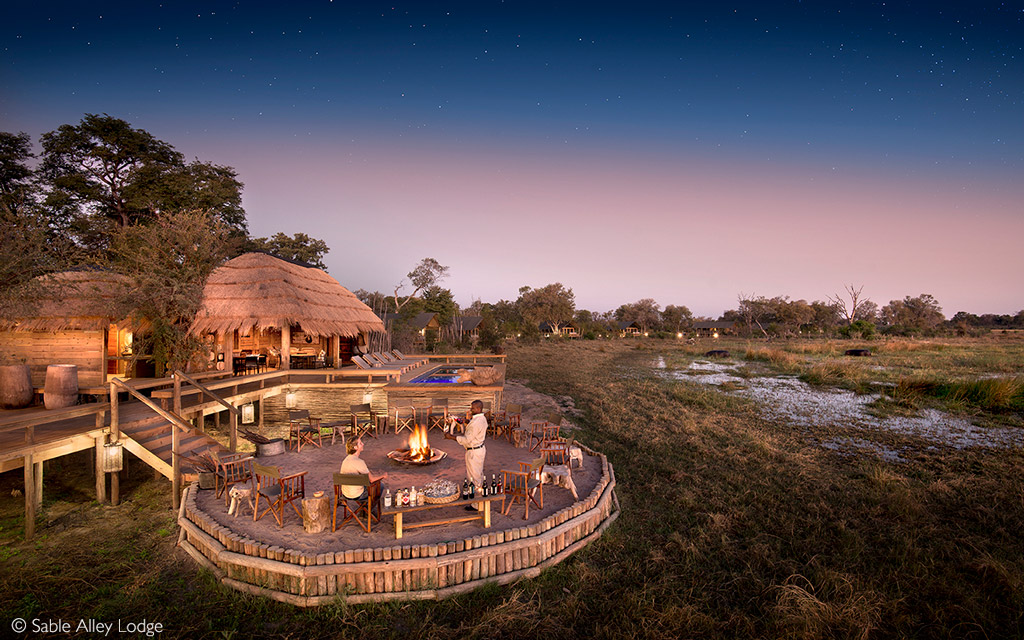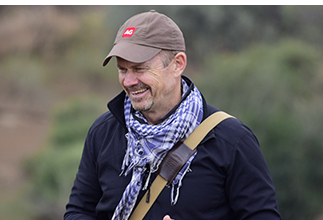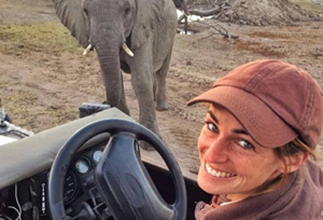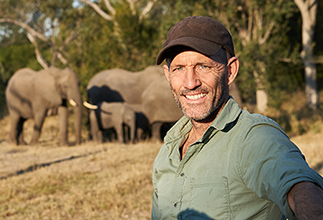
This is a copy of our weekly email newsletter. Subscribe here to receive the newsletter.

Summer in the Lowveld has arrived with a vengeance – with several days exceeding 40 degrees Celsius and deciduous trees pushing out green shoots to replace the waning explosion of spring flowers. Cuckoos call frantically, and large songololos trundle around in anticipation of delicious rotting leaves. No dung beetles yet, but tortoises can be seen hunting down succulent early buds.
Life is now a smidgeon easier for the browsers, but there is still no respite for the ribby warthogs and other grazers as the first deep rains and grass shoots are still awol. Rotund female zebras and impalas look likely to drop their babies soon – good news for local young leopards looking for easy kills. We have enjoyed a few thunderstorms but with disappointing rain, and so we gaze in hope at the daily build-up of cumulonimbus clouds.
Seasonal blessings, special ones, thanks for your support over the years.
Keep the passion

Simon Espley – CEO, Africa Geographic
From our Scientific Editor

There is something akin to childlike excitement on Christmas day when checking the memory card of a camera trap (a motion-sensor camera often used to monitor wildlife). Of course, sometimes it yields 5,000 images of a twig blowing in the wind or 200 pictures of impala legs (or worse, clear evidence of something happening outside of the field of view). But there is always the chance of capturing something extraordinary. Imagine how the folks at Panthera and Birdlife felt when one of their camera traps set up on De Hoop Nature Reserve yielded an albino honey badger!

From our Editor-in-Chief

Yesterday, I was tapping away at my keyboard when I heard a high-pitched whistle from outside. It was an unfamiliar sound; definitely a bird and a bit like the start of a sunbird call. There are limited options for wilderness discovery in springtime Johannesburg so I dispensed with my email, grabbed my binoculars and dashed outside. After a few minutes, I discovered the source of the whistle was an adult Cape robin-chat trying to coax its young fledgling into flying. I returned to my labours with a great sense of peace and satisfaction – this is what wild discoveries do for me (and many human beings!).
Our first story below is about the rescue of five white-bellied pangolins from the markets of Lagos, Nigeria. It’s also about selfless dedication to the welfare of the earth’s wild creatures.
In our second story, award-winning photographer, traveller and storyteller Marcus Westberg delves into the pros and cons of tourism – especially the luxury kind – as he seeks a greener future for travel post the pandemic. (club members only).
Finally, our third story below is an exposition of the romance and wildlife wonders of Samburu – one of two destinations on our brilliant Kenyan travel special.

Story 1
https://africageographic.com/stories/white-bellied-pangolin-pups-in-nigeria/
PANG RESCUE
White-bellied pangolin pups, rescued from an animal market in Lagos, desperately need help from Namibian pangolin expert
Story 2
https://africageographic.com/stories/in-defense-of-some-tourism/
IS TOURISM GOOD?
How do we rebuild travel after the trauma of 2020? Tourism is a conservation asset we can’t afford to lose and Africa is ahead of the game (club only)
Story 3
https://africageographic.com/stories/samburu-home-of-the-samburu-special-5/
SAMBURU
Samburu is a gorgeous, arid land steeped in rich tradition, where wildlife, people and livestock thrive – a modern conservation marvel
 DID YOU KNOW: Dwarf mongooses shun bullies!
DID YOU KNOW: Dwarf mongooses shun bullies!
To comment on this story: Login (or sign up) to our app here - it's a troll-free safe place 🙂.![]()







